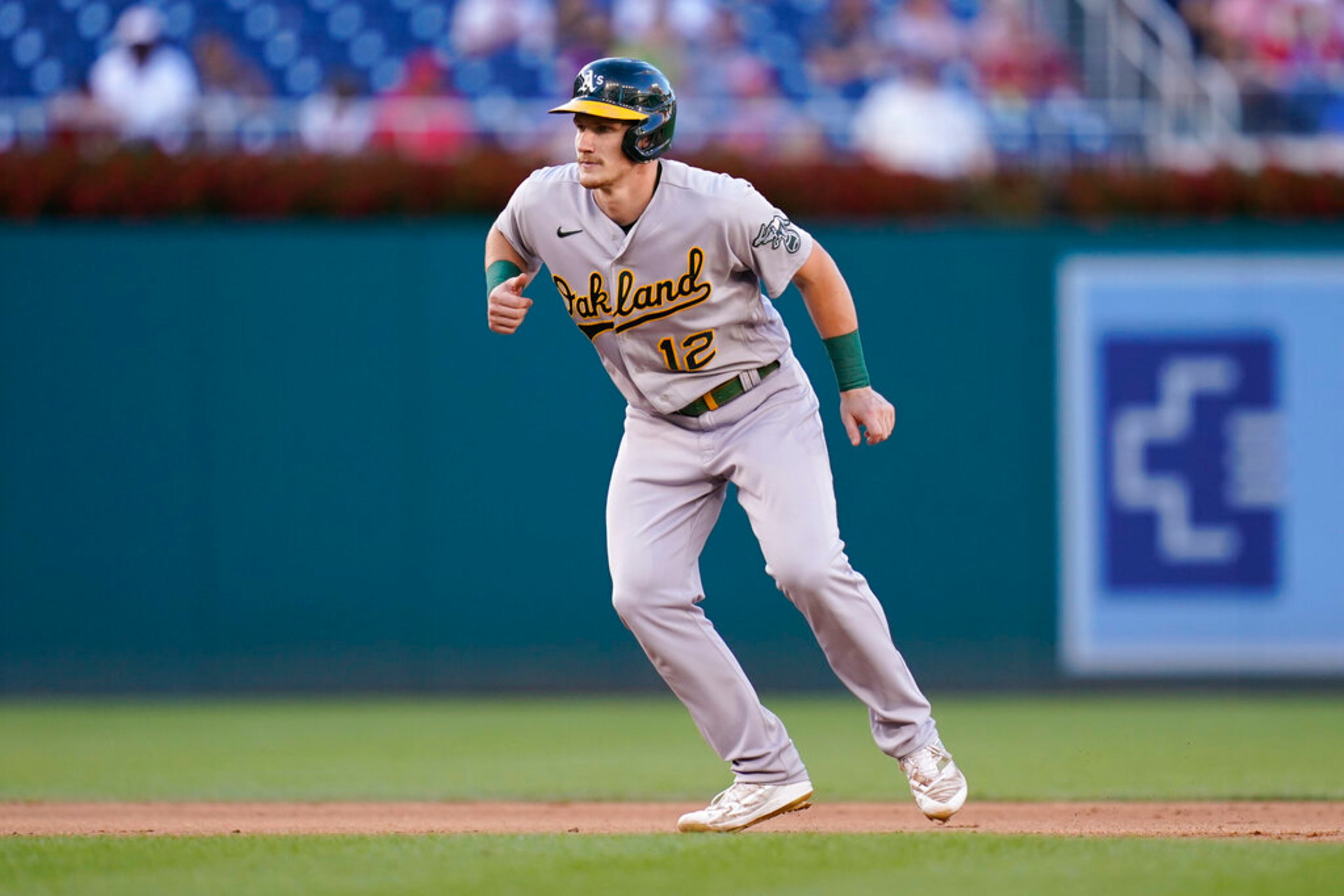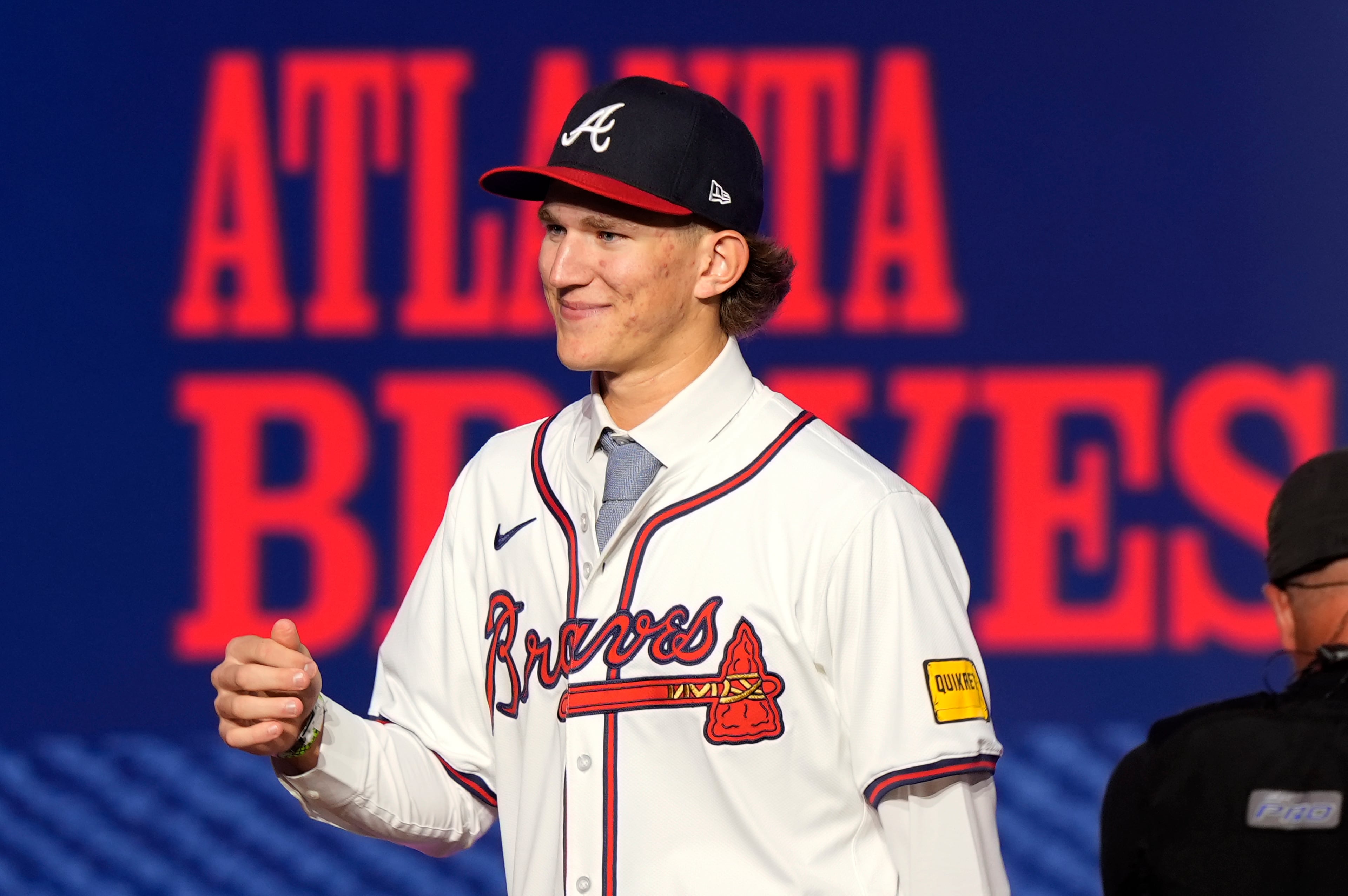By extending Sean Murphy, Braves continue utilizing their method




















As a member of an American League team until a couple of weeks ago, Sean Murphy had not played against the Braves much. But he saw them twice last season and came away with a simple thought.
“Man, that’s a deep team,” he thought to himself. “That’s a good team.”
After recalling this, he said: “The fact that so many of the guys are locked up long term leads me to believe that this is just going to keep getting better.”
That group now includes him. Murphy is the newest member of the Braves’ talented and deep core, signing a six-year, $73 million contract extension with the team. The deal, which runs through the 2028 season, includes a $15 million club option with no buyout for 2029.
“Last night was a little weird,” Murphy said on a Zoom call Wednesday. “It hadn’t really sunk in yet. A lot of people (were) texting me and calling me to congratulate me. It felt good to know that there was some support out there.”
If you include the club options on contracts of Ronald Acuña and Ozzie Albies, the Braves have those two, plus Matt Olson, Austin Riley, Michael Harris, Spencer Strider and Murphy locked up through at least 2027. In theory, this should give the Braves a chance to contend for a World Series every year.
But there is some risk to how the Braves are doing this. On one hand, they are piling their roster with talented young players for years to come. On the other, there’s a chance things don’t work out.
This isn’t a criticism of the Braves – the man in charge made this point himself.
“There’s risk to this, no doubt about it, when you lock yourself into this,” Braves president of baseball operations Alex Anthopoulos said Wednesday. “I think that’s the trade-off. You’re guaranteeing, you’re committing. But we do like the fact that guys can just worry about going out and playing. They don’t have to worry about making a certain salary, getting certain statistics and so on, and they know they’re going to be here.”
Right there, you have both sides of this.
Each time the Braves extend a player like they did with Murphy, fans of rival teams are incensed. “How can the Braves keep doing this?” they ask. “There has to be something fishy going on!”
While it’s impressive that Anthopoulos has built such a strong core with this method, the team isn’t simply taking advantage of players. There’s obvious risk to signing a young player to a long-term deal. Will he stay healthy? Will he continue playing well? By doing it this way, the Braves don’t give themselves as much time to answer these questions and gain other pertinent information.
And because the Braves put faith in a player so quickly, the terms might look more favorable to the team. But there are many factors. Around baseball, people in the industry marvel at what the Braves are doing and how players enjoy playing in Atlanta.
Riley could have pushed extension talks and tried to drive up his price by continuing to play at an MVP level, but he knew he would be happy in Atlanta long term – and that mattered during the negotiations. Harris, who grew up a Braves fan, never has wanted anything as badly as putting on that uniform for years to come. Strider cared about being on a team that had a chance to win it all in each and every season. Murphy and his wife saw it as a plus that they would be in one place – somewhere they can be comfortable – for a long time.
Since Anthopoulos took over, the Braves have become more and more aggressive with handing out long-term extensions to young players.
“It’s a good place to play and a competitive team,” Anthopoulos said. “By all these guys staying, it ensures, hopefully, that we stay competitive – assuming, one, that they stay healthy and two, they continue to perform. That’s not always a given. As much as these guys are talented, and they’re great people and they work hard, no one plans on having a bad year, no one plans on getting hurt. But it happens. You’re dealing with human beings.
“It’s a model that we’ve employed. I think it’s important for us, for the parameters that we have, for the market we have, for what we have to work with. That doesn’t mean that if I were a general manager in some other city, that I would feel the same way. But I do believe everything you do should be team-specific and in my view, with the way things are set up, this is what works for the Braves.”
The Braves never have spent big in free agency, which packs a ton of risk with a steep cost. They have scouted, drafted and developed. Now they are extending.
If all goes to plan, the continuity will help – in the clubhouse, in the lineup, with the fans. It also could mean Anthopoulos is able to more clearly zero in on what he needs in future offseasons because his core could be a great foundation.
“There’s good and bad,” Anthopoulos said. “If these guys are all healthy and performing well, sure, it’s great, you don’t have as many holes to fill. In the same vein, if guys do have a down season or they do get hurt, the dollars are allocated at that time. It should lend to a less-active offseason because there should be fewer holes, in theory, if things are going well.
“The point of these deals is for it to work out for all sides, right? Players want to perform well, they want to stay healthy. Team wants the same thing. No one wins if things aren’t going well.”
As a Montreal Expos fan growing up in Canada, Anthopoulos saw his favorite players continue to leave because the team couldn’t pay them. He acknowledges that may have stuck with him. And while he doesn’t do deals out of emotion, he said it’s nice to know that Braves fans can buy a player’s jersey and know they can wear it for a long time.
Anthopoulos’ biggest worry is sustainability. The Braves’ business arm has been successful, and he must do his part. “From a baseball operations standpoint, we have to pull our weight, meaning we have to put a good product on the field every year no matter what,” Anthopoulos said.
In 2022, he has started his work on that for future seasons with a flurry of long-term extensions. Talks for the latest one, for Murphy, intensified in the previous 48 hours. The Braves and Murphy agreed to the deal Tuesday night, which added to the group of players who will be here for quite some time.
“It feels unique,” Murphy said. “You look at that list of players, and you like everything about it. Those guys are awesome. It’s an honor to be included in that mix of those guys. Going forward, I can’t imagine this team being anything but great for the next several years.”
Anthopoulos recalled something that the late Hall of Famer Roy Halladay told him years ago: Free agency, Halladay said at the time, is about choosing where you want to play.
“These guys are choosing to stay here, and they don’t have to,” Anthopoulos said of his core. “I think that’s important, and it’s a credit to Atlanta and the organization across the board.”



